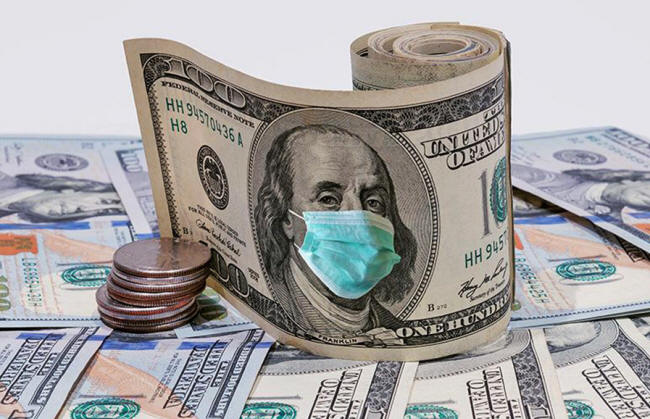|
But in this crisis, things are different...
This time cash itself,
passed from hand to hand across neighborhoods, cities and societies
just like the coronavirus, is a source of suspicion rather than
reassurance.
The pandemic has also reawakened debate about the continued viability of what has been the physical lifeblood of global economies:
From the supermarkets of the United States and Japan to the shantytowns of Africa to the gas stations of Tehran, a growing number of businesses and individuals worldwide have stopped using banknotes in fear that physical currency, handled by tens of thousands of people over their useful life, could be a vector for the spreading coronavirus.
Public officials and health experts have said that the risk of transferring the virus from person to person through the use of money is minimal.
That hasn't stopped businesses from refusing to accept currency, and some countries from urging citizens to stop using banknotes altogether.
In the midst of the coronavirus era, a thousand calculations are made before cash is handled - mostly with gloved hands.
But is ditching cash altogether even feasible?
But for much of the rest of the world, letting go of cash is difficult if not impossible...
'CASH IST FESCH!'
Humans have a centuries-old emotional relationship with physical money that is difficult to erase.
"Cash ist Fesch" is a common saying in Austria and southern Germany.
The phrase, which literally means cash is beautiful, reflects both countries' attachment to cash - and not just among the older generation or those who worry about the loss of privacy that comes with cashless payments, but also among some younger people who see it as a status symbol.
Since the virus outbreak, however, shops that have remained open, like grocery stores, have posted signs encouraging people to pay with cards.
Many are:
The belief in "cash is king" reigns, though the country has had zero interest rates for two decades, far longer than the rest of the developed world.
But the threat of the coronavirus could be the impetus the nation needed to move toward going cashless, said Hiroki Maruyama, who heads the Fintech Association of Japan, a nonprofit that supports innovation in financial services.
CASH IN A CRISIS
In crisis-hit countries and parts of the world gripped by conflict or inflation, cash is still carried in thick wads for simple shopping expeditions.
In Lebanon, as the economic situation deteriorated late last year and the fear of banks collapsing mounted, many people began saving cash in their homes. The sale of home safes surged.
An estimated $3 billion was withdrawn and stashed at home, according to the governor of the country's Central Bank.
As banks imposed capital controls, trips to the bank to withdraw foreign currency - followed by a trip to one of the ubiquitous exchange shops to change money on the black market - became the norm for many Lebanese.
He said he feared unwanted attention from authorities.
In Iran, one of the world's worst coronavirus hotspots, there are no international bank cards, like Visa or Mastercard, because of U.S. sanctions.
Many were surprised at the new banners that appeared at some gas stations in Tehran:
In Venezuela, it is common to see bolivars littering the streets because the local currency has lost its value.
Cash still rules in West and Central Africa even with the growth in regional banking options and mobile money service providers.
Monthly banking account fees are prohibitive for many, and the self-employed often keep their savings at home in hard currency. ATM machines often don't work.
Dorothy Harpool, director of student and community initiatives and lecturer at Wichita State University's W. Frank Barton School of Business, predicted the pandemic would lead some consumers to rethink their use of cash.
But going completely cashless, she says, is a long way off.
In particular, cash transactions are also likely to remain for businesses operating under the radar of government and other regulatory bodies.
Ihsan, the Beirut money changer, said there are certain things you just can't do without cash - particularly in a dysfunctional and developing nation.
|


